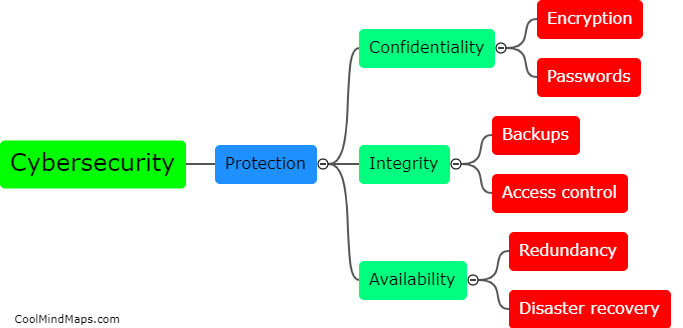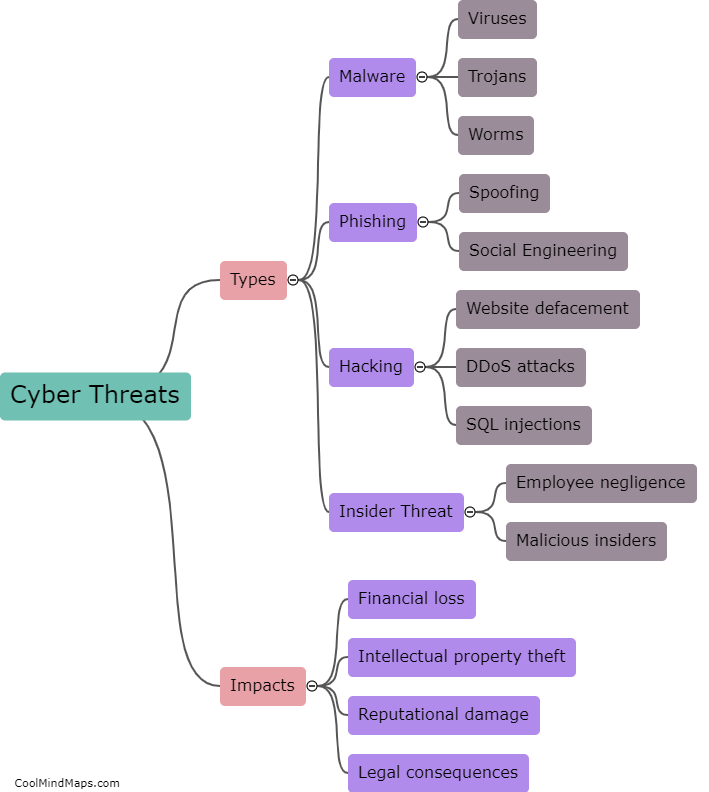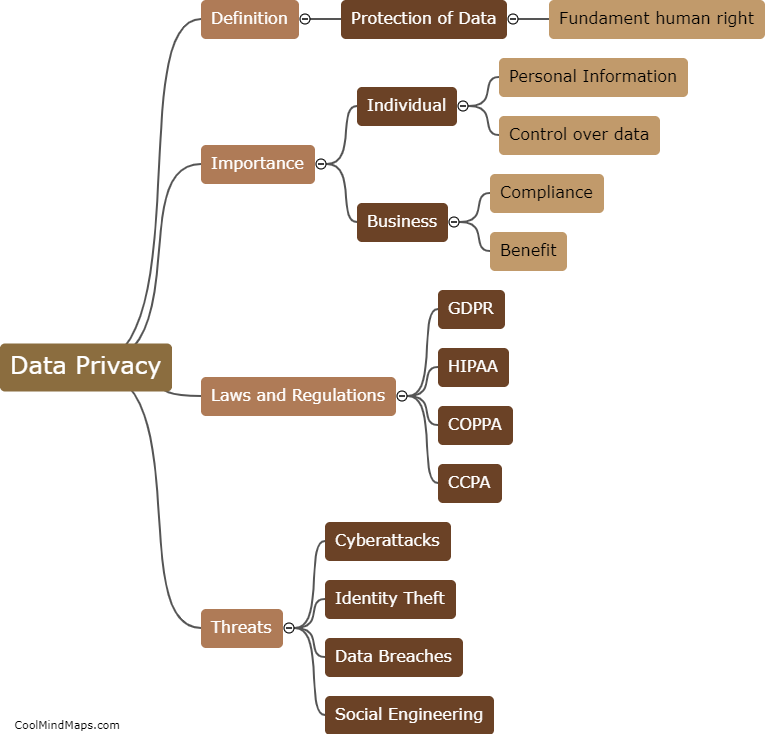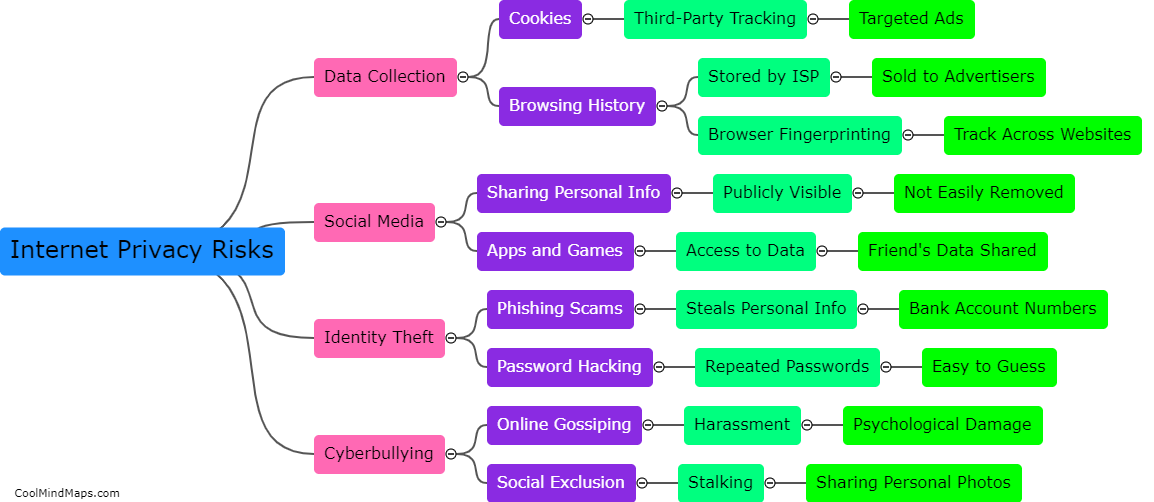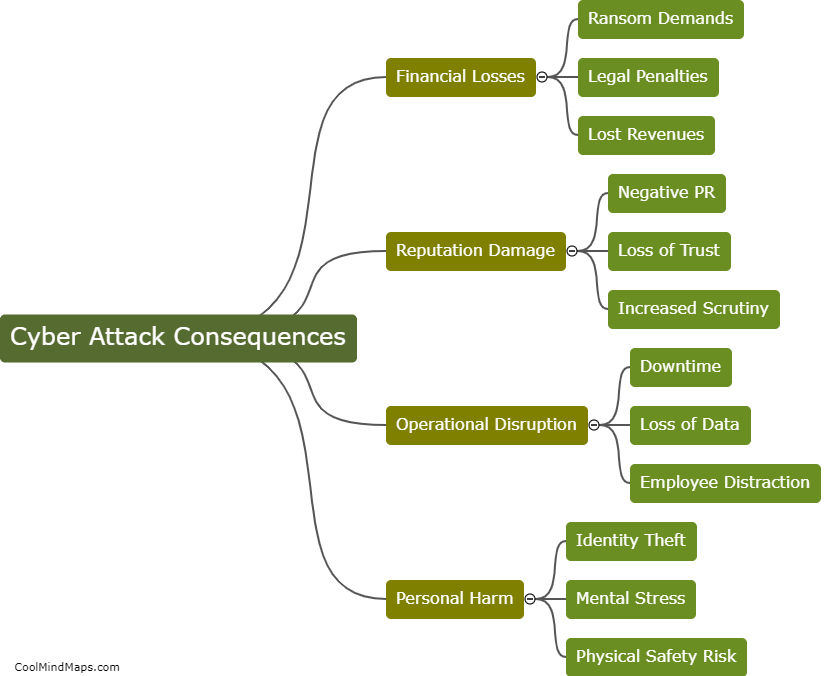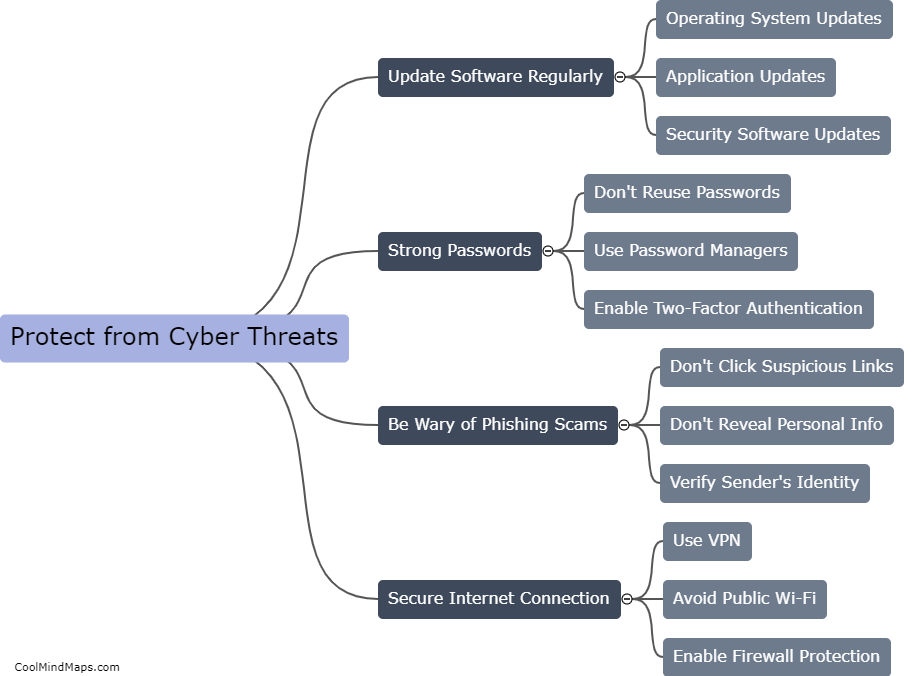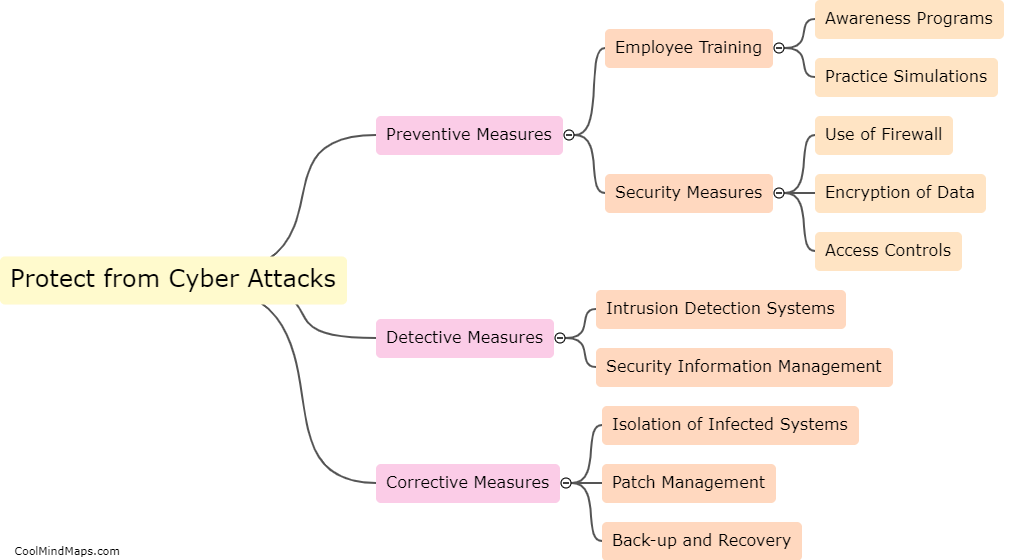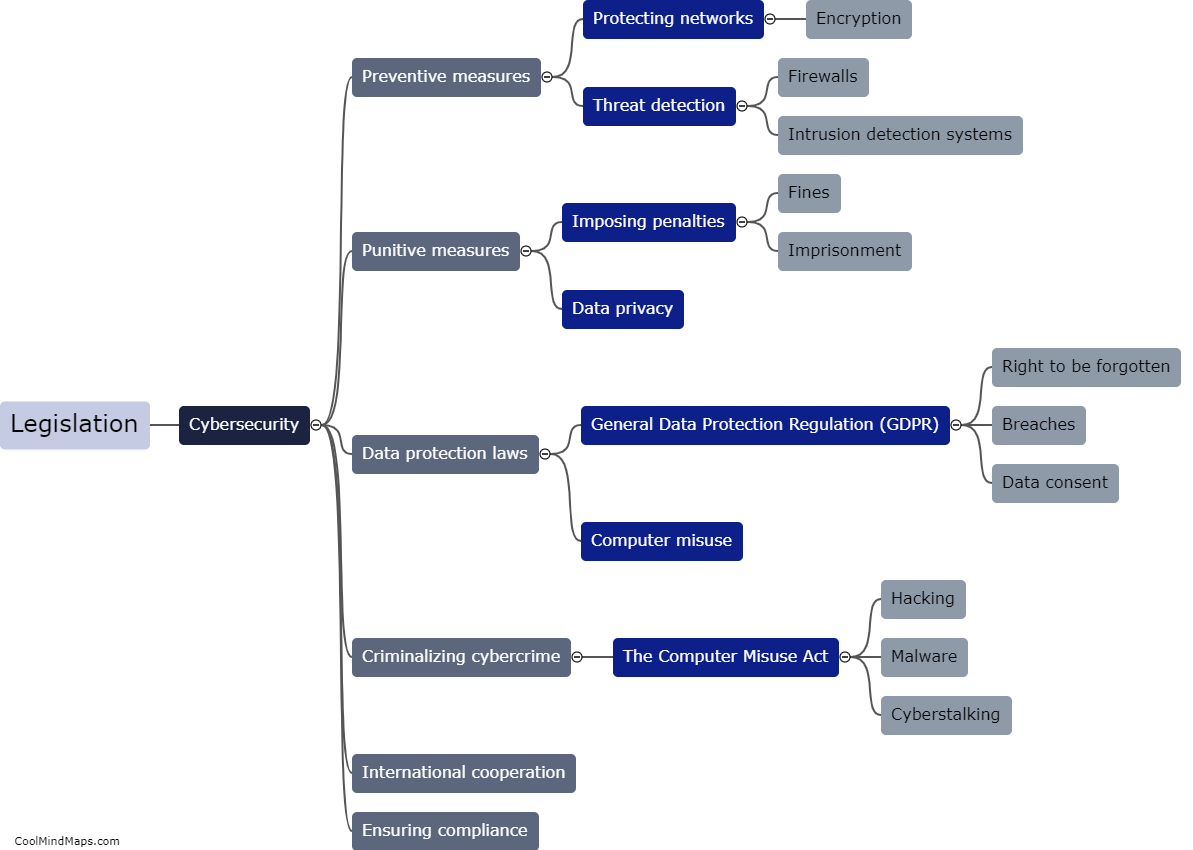What are best practices for online privacy?
Best practices for online privacy include regularly updating passwords, using two-factor authentication, limiting the amount of personal information shared online, being cautious of public Wi-Fi networks, and avoiding suspicious emails or links. It is also important to review privacy settings on social media and other websites to ensure that personal information is not being shared with any third-party sources. Additionally, regularly checking credit reports and monitoring activity on financial accounts can help detect any fraudulent activity. Being aware of these practices can help protect personal information and prevent identity theft.

This mind map was published on 18 April 2023 and has been viewed 99 times.




